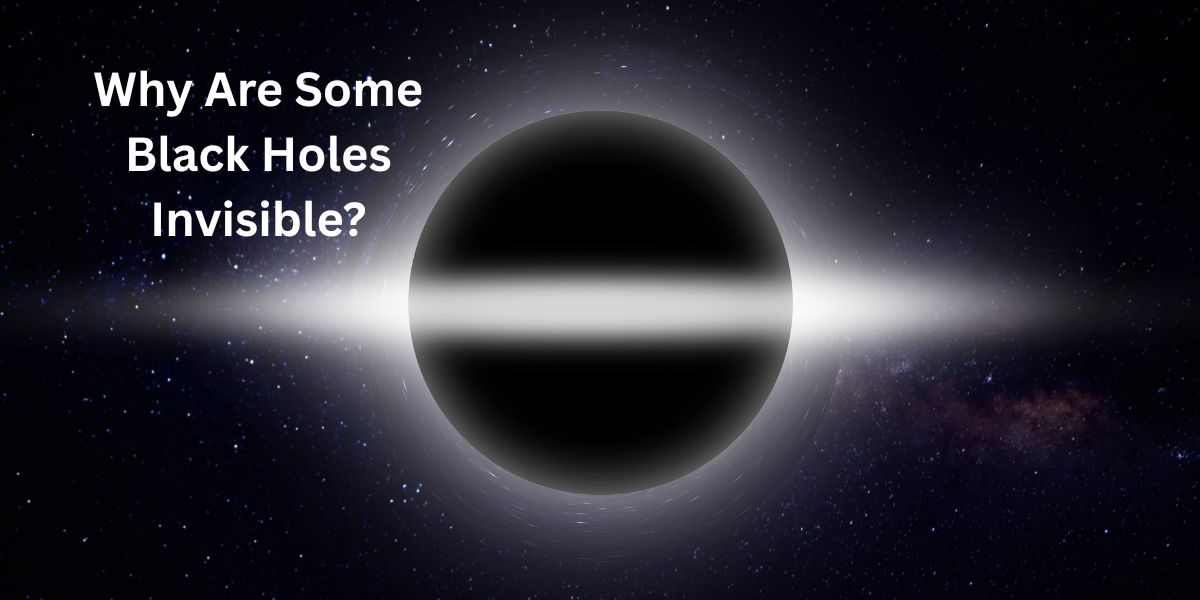Have you ever looked at the night sky and wondered about the mysteries of space? Stars, planets, and galaxies shine brightly, but some of the most powerful objects in the universe are completely dark. Black holes are one of space’s biggest secrets—they are so strong that even light cannot escape them!
But here’s something even stranger: some black holes are invisible. If they don’t let light escape, how do we even know they exist? Scientists use special tools and tricks to find them. So, how do they do it?
What Is a Black Hole?
A black hole is a place in space where gravity is super strong. Imagine a giant vacuum cleaner that sucks in everything—even light! Nothing inside can come out. Black holes form when very big stars collapse at the end of their lives.
- Fun Fact: If the Sun became a black hole (don’t worry, it won’t!), it would be as small as a city! But its gravity would still be super strong.
- Comparison: Think of a black hole like a whirlpool in water. If you get too close, you get pulled in!
Why Can’t We See Black Holes Directly?
Black holes are invisible because light cannot escape them. Normally, we see things when light bounces off them and reaches our eyes. But since black holes trap light, they stay dark.
However, scientists can still find them by looking at their effects:
- Stars Moving Strangely: If stars orbit something invisible but heavy, it might be a black hole.
- Hot Glowing Gas: When gas falls into a black hole, it heats up and glows before disappearing.
- Gravity Bending Light: Black holes bend light around them, creating weird distortions.
How Do Scientists Find Invisible Black Holes?
Since black holes don’t emit light, scientists use other clues:
- X-ray Telescopes: Gas near black holes gets super hot and releases X-rays. Special telescopes detect these.
- Star Movements: If stars are circling “nothing,” a black hole might be there.
- Gravitational Waves: When two black holes collide, they send ripples in space-time that detectors can catch.
- Example: The first black hole picture (taken in 2019) wasn’t the hole itself—it was the glowing gas around it!
Are All Black Holes Invisible?
Not exactly. While the black hole itself is dark, the area around it can shine. When a black hole pulls in gas and dust, the material heats up and glows brightly. This is called an accretion disk.
- Supermassive Black Holes: These giants sit in galaxy centers and often have bright disks.
- Lonely Black Holes: Some float alone in space with no gas to eat, making them harder to spot.
Can a Black Hole Hide Forever?
Some black holes stay hidden if they’re not pulling in matter or affecting nearby stars. But scientists keep improving their tools to find even the sneakiest ones.
- New Technology: Future telescopes may detect more hidden black holes by their tiny effects on light.
- Space Mysteries: There could be millions of black holes we haven’t found yet!
Conclusion
Black holes are some of the most mysterious objects in space. Even though they’re invisible, scientists use clever tricks to find them. By watching how stars move, detecting X-rays, and even listening to space ripples, we uncover these dark secrets.
📌 Frequently Asked Questions
How big can a black hole get?
Black holes can be as small as an atom or as big as billions of Suns combined! Supermassive black holes in galaxy centers are the largest.
Can Earth be sucked into a black hole?
No! The nearest black hole is far away. Even if one came close, we’d notice its effects long before danger.
What happens if you fall into a black hole?
You’d stretch like spaghetti (called “spaghettification”) before reaching the center. But don’t worry—it’s impossible to survive!
Do black holes last forever?
No, they slowly evaporate over trillions of years (Hawking radiation), but this takes longer than the universe’s age!
How many black holes are in our galaxy?
Scientists think there are millions, but we’ve only found a few dozen so far.
Can black holes die?
Yes, but very slowly. They lose energy over time and eventually vanish.
What’s inside a black hole?
We don’t know! The center (singularity) breaks physics rules as we know them.
Can we create a black hole on Earth?
No, and even if we could, it would be too tiny to be dangerous.
Do black holes move?
Yes! They can wander through space or even collide with each other.
Will the Sun become a black hole?
No, it’s too small. Only very massive stars turn into black holes when they die.
